8 suggestions to help you stay away from anxiety about health
Author:Cool brain Time:2022.09.04

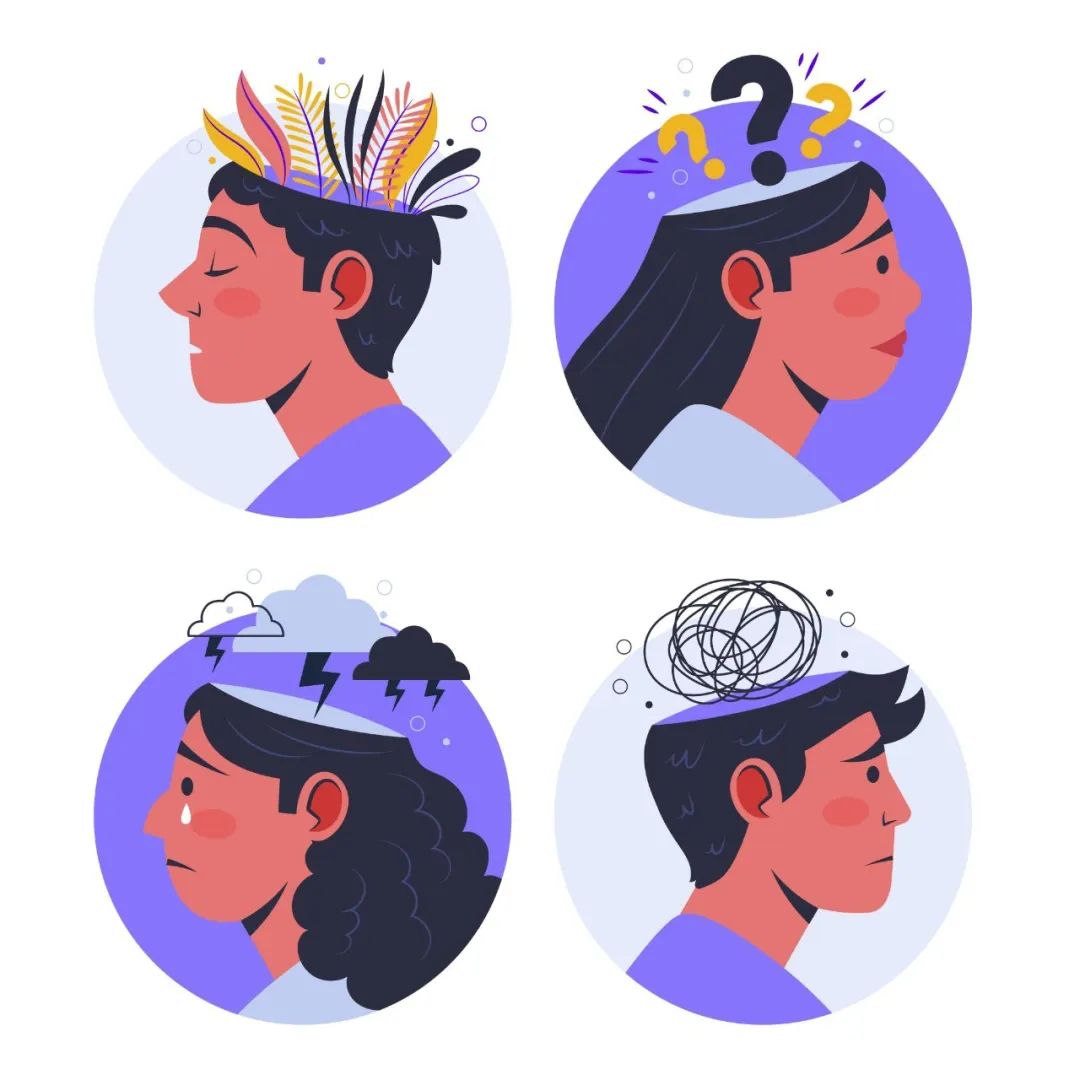
Via: freepik
The following is the audio of the full text of Miss Sister
Author | Karen Cassiday
Translation | Cotton Bear
Grade -Cool Brain Creative
Reading | Hu En
Artist | Jenny
Edit | yj
Unless proper treatment is obtained, disease anxiety disorders may be persistent and harmful. Even after being comforted, the continuous concerns of the disease will affect learning, work, sleep, interpersonal relationships, and even the idea of depression and suicide.
Have you ever experienced this experience? Stay up late to compare some of your symptoms with those extremely bad diseases? For example, when you notice a spots, rash, or strange mass on your body, are you afraid of it? What's more?
Are you afraid of getting the results of the examination from the doctor, because do you think this might be a bad news? Of course, it is normal to worry about your health, but if you answer any of the questions described above They are all "yes", then you may be like the world's other 979 million people with "disease anxiety" -either pay too much attention to your health, or over -pay attention to the health of your love.
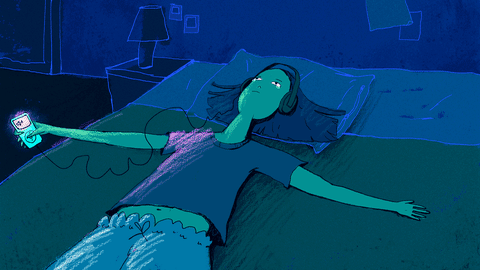
Via: giphy
Unless proper treatment is obtained, disease anxiety disorders may be persistent and harmful. Even after being comforted, the continuous concerns of the disease will affect learning, work, sleep, interpersonal relationships, and even the idea of depression and suicide. It can also lead to unnecessary medical examinations and procedures. Whether your current health anxiety is slight or serious, the purpose of this guide is to help you bypass this trap, change the perspective of the problem and harvest the calmness of the heart.
Let's take an example of a patient with disease anxiety, let's call her Liz. Liz's friend was recently diagnosed with brain cancer because she noticed that the vision of one eye was damaged and folded to her finger because she hit the wall. Liz quickly began to cover her eyes with one hand to check her vision. She realized that sometimes the vision of one eye was blurred than the other eyes. She also noticed that she had a sense of balance when she turned sharply. She began to study the type of cancer that she was suffering from her friends, hoping to understand the symptoms of her friend, and hoped to confirm that she was fine.
Unfortunately, Liz not only did not feel at ease, but found that vision damage and dizziness may be the symptoms of brain cancer, as well as headaches and inadequate attention. These two symptoms have occurred in her body in the past few weeks to her. Essence Then, Liz began to talk to others to see if they had the same symptoms, they all told her not to worry, but she couldn't stop worrying because she could determine that she had no brain cancer? She began to consider her child with her child Say goodbye to his partner, receive painful treatment, and accept the end of his care, she cries, and she feels nauseous and trembling. Because this tremor does not disappear, she mistakenly thinks that this is another symptom of cancer.
Liz was introduced to me after asking the doctor to scan her brain to detect brain cancer. Her doctor correctly realized that she was very anxious and thought that there was no need to do any examination, because he knew that her symptoms were either a product of anxiety or normal changes in vision and attention.
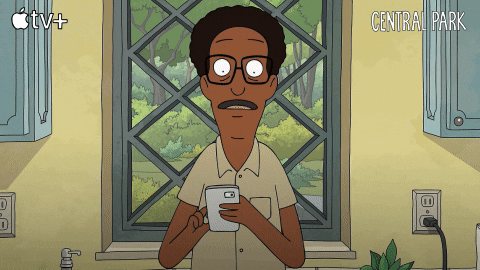
Via: giphy
The problem that cannot tolerate uncertainty
If you are extremely anxious about illness like Liz, you may be surprised to find that your problem is not your health. But you can't stand the uncertainty of whether you have diseases and health. For those who can endure the uncertainty of their health, they usually think about it: "I must be tired or stressful, so I will not take these symptoms to heart." On the contrary When sex cannot tolerate, your brain will start to imagine the worst possibilities behind the symptoms. When you notice physical symptoms such as rash, lumps, spots, pain, pain, fatigue, or discomfort, you are easily nervous. Your symptoms may be real, but you misunderstand that they are a danger of serious diseases.
For example, you may notice a mole and then worry that you may suffer from malignant melanoma-a kind of life-threatening cancer. Another patient cried and called me because he was worried that one pupil was larger than another -he had been comparing the size of his pupils in the mirror, and later he was convinced that his optic nerve had brain tumors, causing the pupils of one eye Graduated.
When you suffer from disease anxiety, your brain loses its flexible ability and the ability to imagine various other symptoms. On the contrary, you will fall into the worst situation of imagination. You can even say something to prove that your concerns are reasonable, such as: "Well, there must be someone to worry about my health", or "worrying about the child's health is the work of the parents."
The low tolerance of uncertainty makes you mistakenly think that your behavior is reasonable, and your concerns and seeking comfort are a way to be responsible for your health. You may be difficult to imagine that people who have no disease anxiety will not worry or seek comfort when facing medical symptoms or diagnosis of severe diseases. However, research shows that optimism -even if you do n’t know how to achieve it, you can imagine the ability of a good result -closely related to good mental health.
We can live well with the disease
You may think -but many people do have serious illness, and their concerns are not unreasonable! However, contrary to the general view, most people with severe or advanced diseases do not have diseases of diseases. Being able to enjoy life and live well, although you know that there will be diseases in the future. When people get a serious medical diagnosis, they usually happen that they will have a initial adaptation period, and then there will be a wish to live well in the present and enjoy all the good times that can be owned. When I led a group to help patients with terminal illness, they felt frustrated with other people's sympathy, and wanted to be happy to have a good time and enjoy a good moment. They told me: "We want to live as much as possible, because we know that we will die!" "I realize that compared with the lives of others, they don’t think their lives are tragedy or unfortunate. On the contrary Worried that the future is a waste of time, because they know that their future is shorter and uncertain.
People with severe diseases or terminally ill sometimes experience disease anxiety disorders -but in this case, their anxiety is beyond the scope of disappointment or sadness, and these feelings are usually accompanied by such medical diagnosis. They tend to focus on the tragedy of their environment, repeatedly worry about the worst situation, instead of accepting their diagnosis, mourning their misfortunes, and then re -focusing on making their current environment more effective and more meaningful efforts Essence
It is understandable for the guarantee of a healthy health, but this is unable to have anyone. The best way to overcome health anxiety is to solve the problem of inability to tolerate uncertainty, and break the cycle that causes evasion, seeking comfort and examination of symptoms. This will require some courage, support and willingness to endure worry in order to learn in the long -term life without fear. In this guide, I will give you a series of gradual steps, so that you will start to feel at ease of your health.
Via: giphy

How to do
1. Understand what it worsen your disease anxiety
Check yourself or others' bodies, study symptoms, talk about symptoms for comparison, avoid hearing serious diseases or deaths, or repeatedly talk with your doctor to ensure that you are okay -all these activities are understandable, you are trying to reduce you Health anxiety, but they may make the situation worse. These behaviors can be deeply ingrained by "negative enhancement" -this refers to strengthening or rewarding a behavior by eliminating unpleasant things.
Seeking comfort and escape can temporarily get rid of anxiety and anxiety, but in the long run, it will make you worse, because it makes you believe that you can't stand the uncertainty of your future health. We must eventually face uncertainty.
For example: imagine that you find that you often feel tired and difficult to concentrate, and then you remember that fatigue is a symptom of Lyme disease. This makes you worry: "What if I have a Lyme disease?" You try to find the evidence that you do not have Lym disease through the Internet to get rid of your concerns. Unfortunately, fatigue is one of the symptoms of Lym disease, but You can't be sure if your fatigue is normal or caused by Lym disease. Then you will feel more anxious, but there is no way to prove that everything is good.
Then you will look at other medical websites more impulsively and want to know how to get the test results of Lym disease. The negative strengthening becomes a vicious downward spiral, leading to more concerns and more consolation. Continuous health inspections and research and similar activities have weakened the ability to rule out the worst situation, making it difficult for you to imagine other possibilities, such as just a minor illness or some short -term and unimportant symptoms.
Negative reinforcement is like playing a slot machine: you start to believe that there is more dialogue about disease or visit medical websites one more time, but on the contrary, it will soon lead to more anxiety and want to do more research or ask questions The desire of more problems with others. Once you understand this cause and effect, the next step is to try to reverse the cycle of negative reinforcement.
Via: giphy

2. Find out the incentives that cause your health and anxiety
The best way to reverse this negative reinforcement cycle is to find factors that cause your concerns about the disease, and all methods you try to get rid of worry and anxiety. Once you recognize the trigger factor that causes comfort and avoid further triggering, you can start recovery. Here are some typical causes that cause excessive unpleasant worries:
Notice the physiological symptoms on your body or body;
I heard that others are seriously ill or died of serious illness;
Suddenly short pain, pain or strange feeling;
Seeing things that remind you of diseases or deaths, such as cemeteries, hospitals or funeral homes;
Receive cancer screening or other screening, such as breast X -ray examination, blood test, CT scanning or colonoscopy; or
I watched a movie or story about someone who had a serious illness or died of serious illness.
I suggest you write down the list of anxiety triggers and carry it with you to prepare later. Now, there are two main examples of negative reinforcements in this form. You may use them to get a short -term relief from your concerns caused by your health anxiety trigger:
You can use a table to list the main ways you seeks comfort and avoid triggering with a table -put it at hand and use it later. Once you determine your trigger and negative reinforcement factors, you are ready to start the process of exposing therapy. This is a way to teach your body and mind how to trigger, rather than unexpectedly succumbing to the urge to seek comfort or avoid. 3. Practice exposed therapy related to disease
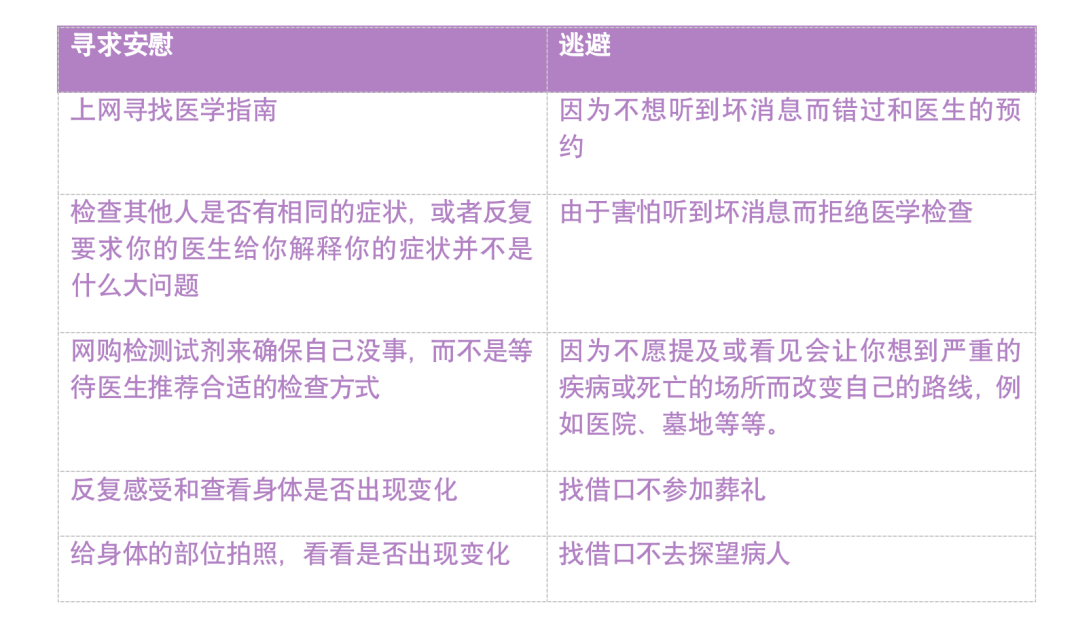
Exposure of therapy and learning vision are the most reliable way to recover from disease anxiety. Exposive therapy includes a decrease in (and eventually ending) your behavior of seeking comfort and escape -so that you are exposed to health concerns, learn to tolerate them, and let them disappear. Your long -term goal is to prove to yourself that you can handle and endure your anxiety without having to escape the negative enhancement quickly. Let me introduce you a real example to help you understand how exposure therapy works.
The young man who worked with me -let's call him Bill -in the same week, he learned that his father was diagnosed with skin cancer, and his father's uncle was diagnosed with colon cancer. Unfortunately, due to the spread of cancer, Bill's father cut out most of the skin on his back. Although compared with it, the cancerous superficial mole was quite small. He also needed leather to cover the affected areas, which made Bill very scared. This caused nightmare and continued concerns about the growth of cancer under his skin.
As a method of response, Bill began to seek comfort and avoidance.
Bill began to check whether his skin signs of unusual mole and accepted the multiple skin cancer screening of different doctors to reduce his concerns. After the screening, he was worried: "What if the doctor missed?" If the doctor has seen me after seeing me, what should I do? "He checked his skin every day, took any suspicious moles or marks, and then sent it every day to send it every day. Go to the doctor's office. "Bill convinced his girlfriend to check his skin until she became frustrated and refused to check. Bill's doctor also refused to see any more photos. Conversely, Bill also avoids his father's back, because seeing it can cause concerns about cancer. He also avoids nearly cancer treatment places or hospice care institutions.
To help Bill, I used exposure therapy, and I will tell you how to do it in a while.
4. Reduction for comfort
Everyone seeks different ways of comfort. You can refer to the previous forms to help guide yourself to reduce your efforts to seek comfort. There are some universal steps you can take here (remember to adjust them according to your own situation):
Throw away the application or bookmarks of any medical website you often use, so that you are more difficult to study the symptoms.
If you can't stop going to "medical research" online, then reduce your "medical research" frequency and restrict it in a short time once a day, or every other day until you are ready to reduce more research.
Let others remind you not to seek their comfort anymore. Answer in a friendly way, such as: "It looks like you are very anxious about your health. I don't want to talk to you about it and make things worse. How can I support you?"
Tell you the medical team you have disease anxiety and ask for their support and help. Explain how you really believe in their medical knowledge, but need help to manage anxiety.
Find a way to stop checking your body, such as a towel during a shower or bathing, so that you will not feel every lump or rash. Cover the mirror image for inspection and delete all the photos that have been monitored.
The following is how to help Bill: In order to reduce his number of inspections, I let him cover all the large mirrors so that he cannot check his entire body. I suggest that he starts with a towel as a barrier while taking a bath so that his hands can no longer move back and forth on your body to find any lumps or lumps that may indicate cancer. He wears sunglasses when he is wearing clothes to avoid seeing his skin clearly.
He also agreed to limit his number of online search times to less than 15 minutes a day, and then gradually reduce the search time until he gave up completely. He deleted photos of his skin on his mobile phone. When he accidentally started looking for signs of skin changes, he asked his girlfriend to help remind him.
Via: giphy
5. Reduce the avoidance of anxiety factors that cause anxiety
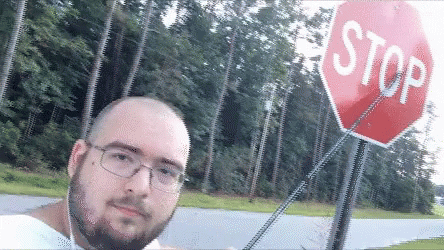
Third, refer to the lists and forms you completed before, and find a trigger factor that specially related to you and you. You may find that you can build your confidence in dealing with difficult things from being difficult to deal with. Here are some common methods to reduce your escape:
Dare to stay in the conversation of serious illness, death, or hospital. Try to listen without changing the topic or leaving.
Repeated practice to the hospital, cemetery or other places that cause anxiety. Allow yourself to feel anxious, imagine some terrible thoughts, and remind yourself that this is just your terrible imagination, making your body and brain believe that danger is real. Do this until you realize that you can handle it.
Practice media reports about diseases, hospitals, dying or severe diseases. You can initially adjust the sound very low, or watch TV on the small screen of the smartphone, and then adjust the sound to the normal volume to watch the full -screen TV. Watch the most horrible scenes until you get used to it, they no longer scare you.
Practice the health of those who know if you know serious or fatal diseases.
Arrange any medical examination or test you escape, and find someone who supports you to help you participate. Tell your medical team your disease anxiety, and how it allows you to avoid cooperating with them. Practicing a terrible idea by writing a story about the serious illness and the upcoming death. Repeat this horrible story until you get used to it. If you think it is too difficult to do this alone by your own strength, you can find someone who supports you.
In order to reduce Bill's avoidance, I asked him to practice driving and see the local cancer clinics and dying care hospitals. He searched all the cancer clinics and dying care hospitals nearby on the Internet so that he can no longer avoid approaching them. He also practiced paying attention to his father's back until he no longer feels worried or unable to control the anxiety caused by it.
He even invited his father to swim with him so that he could see most of his father's skin.
In the end, Bill exposed his concerns by practicing the worst situation, until he no longer made him feel so anxious or unable to cope with his anxiety. He said his concerns loudly, starting from the less terrible idea, and gradually increased to the most terrible thoughts, until these ideas no longer troubled him. This process usually takes 15 to 30 minutes, when you only focus on the most terrible thoughts.
He said this repeatedly: "No one will find my cancer until it is too late," or "If I have cancer and I can't cure it?" What should I do if I get a diagnosis for too long? Or "If I die at the end of the caring hospital, no one came to see me because my body was severely damaged by cancer and failure skin transplantation?"
Faced with your own fear, it may sound terrible and violate intuition, because you want to stop these ideas. However, the power of practice exposed to the worst case is that it can quickly help you see their absurdity and reduce their stickiness. I know that this is the opposite of the reaction when you imagine, but this is one of the most effective ways to see through your concerns and disappear them.
Most of my patients laughed in the end, or we wondered why they were so scared once they tried to reveal their worries. The concerns caused by headaches, characters in TV shows, or unfortunate news of friends, saying loudly that these require great courage. The good news is that this courage will get a generous return and quickly get rid of anxiety. I strongly recommend that you use your less terrible thoughts to try this exercise to prove to yourself that it is effective. Then you will have the courage to try those more terrible ideas.
Via: giphy
6. Think about what it means to live alive
Because disease anxiety is ultimately a kind of uncertainty and fear of the future, I suggest that you also spend some time as a living and breathing person at the same time as you are in contact. Remind yourself the following points:
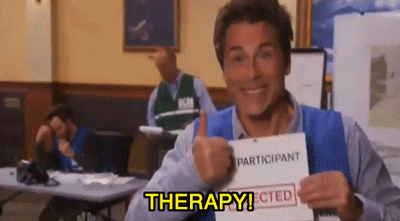
No one can get a commitment to health and longevity. We are all facing uncertainty. As we grow older, what will happen to our bodies and live in a world of illness, disability and death. This is not a tragedy, but it is normal for everyone, including you.
Happiness comes from living with the goal of serving others, having a healthy interpersonal relationship, and can notice the blessings at this moment. This is possible even during the period of illness or death.
Those who have a peaceful mindset will notice the good things at the moment. They focus on the present, rather than trying to guess things that no one knows -what will happen in the future. I spend some time to discover what is beautiful, good or valuable.
This is the last stage of my cooperation with Bill. We rethink what it means to be humans together. Living in a body that may suffer from severe diseases and one day will die. We said that death is a normal process that everyone must go through, rather than a tragedy that only a few people can experience.
We redefine the worry as a waste of time, because he does not want to waste a good time in his life, because death is indeed inevitable. Bill also realized that if he knew that he had a serious illness, he would no longer worry, but wanted to live as better and more vibrant as much as possible in the rest of the time. He believes that the real tragedy is that he spends valuable time to worry, so he wants to learn to accept the uncertainty of our future.
I suggest all my patients and you think about it, if you have only one year of life, what kind of person do you want to be, what you want to do, and then start living in this way. I know that disease anxiety will never appear on your last wish list. The easiest way to trouble this disease is to believe that only if you have a healthy guarantee, you can feel calm. Unfortunately, no living person can get any guarantee for the future. You will have to accept the necessary risks that all humans must bear, and live bravely in the present, and don't know what will happen next. Remember, research shows that those who feel happy and satisfied with their lives are those who serve others, those who cultivate intimate friendship, and those who spend time pay attention to the current lucky people.
The last thing: You might think when you should go to a mental health expert. My suggestion is that if you cannot complete the practice in this guide and find that you are trapped, you can't let go of your worry, escape, and seek comfort, please seek help. Unfortunately, waiting to see if your symptoms will disappear yourself will definitely cause you to be in trouble. Summary-How to overcome concerns about health
The issue of uncertainty cannot be tolerated. Your problem is not your health problem, but that you don't know what will happen in the future and feel uncomfortable.
We can live well with the disease. It is understandable to ensure physical health, but this is impossible. In fact, most people with severe diseases or terminals enjoy life and live well, although they know that there will be diseases in the future.
Knowing what it maintains your disease anxiety. Seeking comfort and/or avoiding diseases is a form of negative reinforcement -they bring you temporary relief, but exacerbate your concerns.
Find out the cause of your health and anxiety. Through all the ways you seeks comfort and avoid disease reminders -then write down these preparations for the next step.
Practice exposure -related exposure therapy. This method will help you learn how to deal with and endure your anxiety.
Reduce your fear and stop doing too much research on disease -related research and other examinations.
Avoid the avoidance of anxiety factors. Gradually let yourself contact the disease reminder, such as watching medical TV programs and going to the hospital.
Think about what alive means. Remind themselves that no one can get a promise of health and longevity. Those who have a peaceful attitude are those who can notice the current blessings.
Via: giphy
Reference (click slide to view)
https://psyche.co/guides/how- -Overcom-the-CheckS- OF-Heorries

Cool brain long -term collection of brain science and psychological articles, welcome to submit
Please submit a mailbox: [email protected]
Click here, let friends know that you love brain science
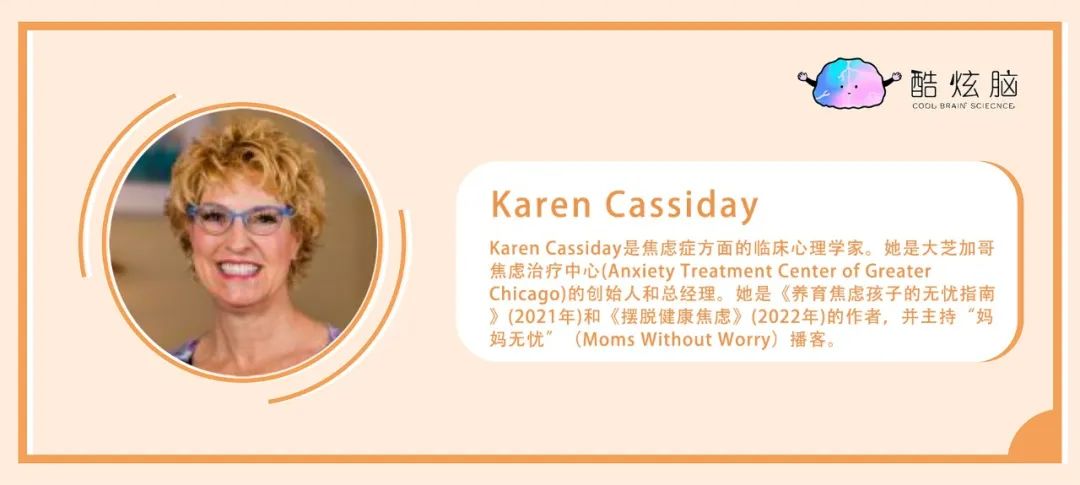

- END -
Many lung cancer comes out!Doctor: These 4 types of people have to check regularly

In life, there are too many people who don't care, and always think that cough is ...
Report on the situation of new type of coronary virus pneumonia in Jilin Province (announced on July 4, 2022)
At 0-24 on July 3, there were no new local diagnosis cases in the province; no new local infection was added.At 0-24 on July 3rd, there were no new cases of hospitalization in the province without a n